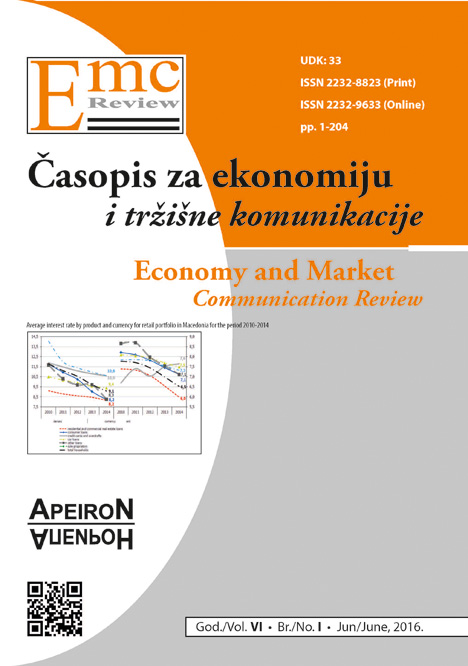MANAGEMENT OF FINANCIAL RISKS IN INTERNATIONAL TRADE FINANCING
DOI:
https://doi.org/10.7251/EMC16081PAbstract
Sale of products with delayed payment, i.e. credit supported sale is a major force in international trade and an imperative in today’s business world. In the contemporary international commerce market positions and negotiation power have changed mainly in favor of buyers, who on the other hand, regularly request credit – based purchasing. Faced with competition on the global market, sellers intending to sell their goods and services on the market are enforced to offer favorable conditions, which is in fact sale with delayed payment. Presence on the global market offers possibilities for profit-making, but at the same time export-oriented businesses are surrounded by potential risks. The major problem in fact is the re-payment of the receivables, which is a result of the time interval from the moment when the foreign buyer will receive the delivered goods to the moment when he will pay the agreed amount.
Risk management and exposure management or hedging exposure, are applied frequently by financial managers, managing the funds of a company, in order to enable exposure cover and reduce the potential instability for the company. The exposure management in case of foreign currency or exchange exposure represents an integral part of the financial function of the company, which acts globally, primarily multinational companies.International trade transactions are administered in far more complex conditions than those on the local/national market. Therefore, the stress should be on the crucial importance of the economic and financial risk management in the domain of international trade finance.
